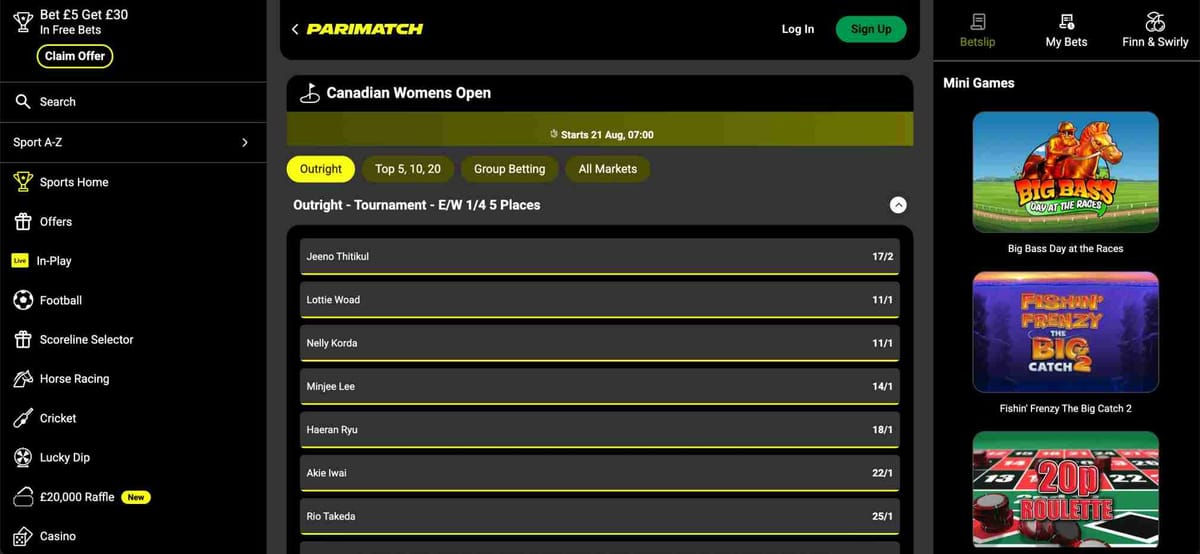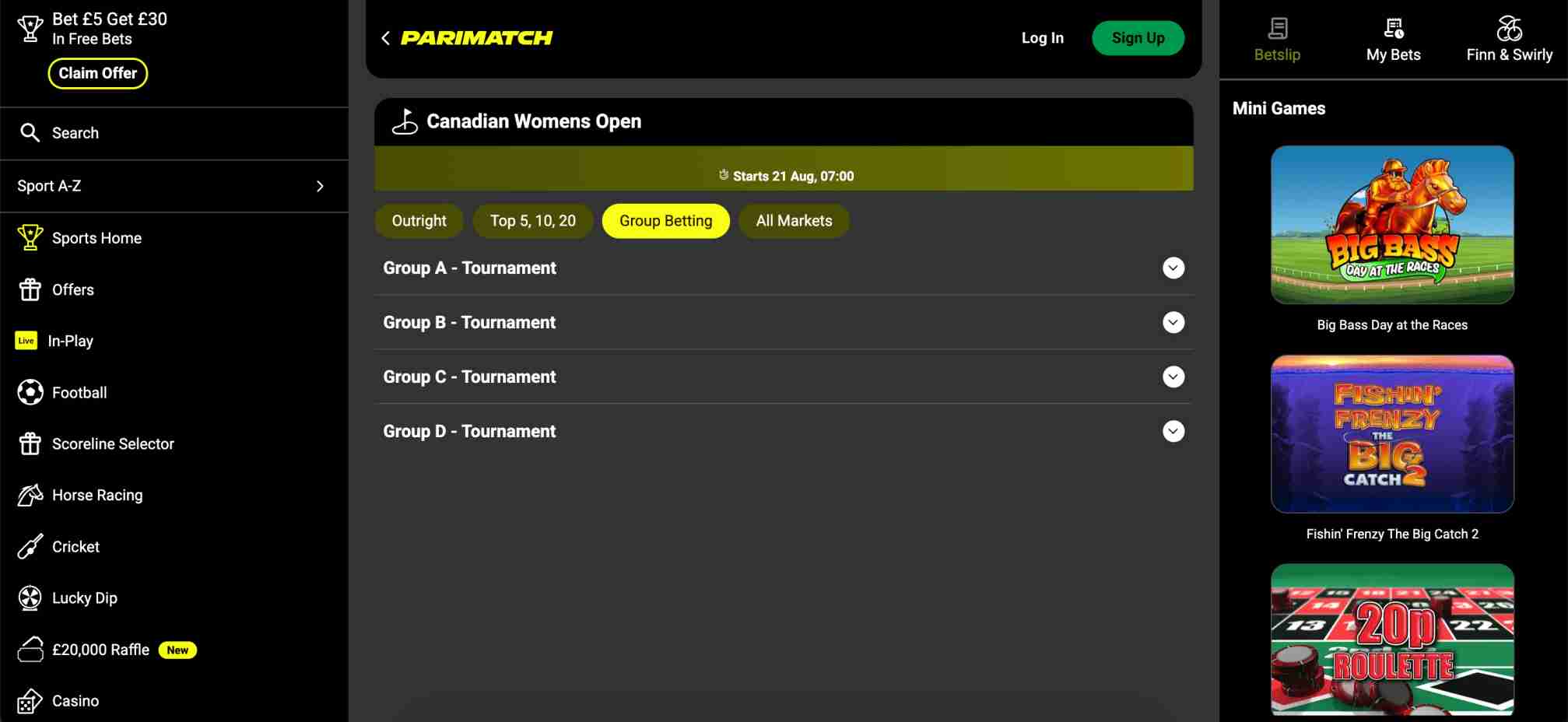What Does Dead Heat Mean on Parimatch? A Complete Betting Guide
Learn how dead heat rules affect bets, payouts, and expectations on Parimatch, plus where ties happen most often and how to manage them.

When a dead heat occurs on Parimatch, it means your bet is settled differently because two or more competitors finished in a tie, so your stake is divided among the winners instead of paying out in full.
This system ensures that no bettor loses everything in the event of a draw, but it also means your return will be smaller than you might expect if you haven’t seen the rule before.
Situations like golf tournaments, horse racing photo finishes, or niche markets often raise the question, what does dead heat mean on Parimatch?, since these sports frequently end with tied results.
In this article, we’ll break down how the calculation works, where you’re most likely to encounter it, and how to manage your bets to avoid surprises.
How Parimatch applies dead heat rules
Parimatch uses a simple calculation when a dead heat happens. Let’s say you back a golfer at 20.0 odds, and he finishes tied first with one other player.
Because there are two winners, your stake is effectively split in half. So if you bet $100, only $50 is treated as the winning stake, while the other $50 is settled as a loss.
The $50 that counts as a win is then multiplied by the odds, giving you the adjusted payout.
I’ve seen this most often in sports like golf, horse racing, and even snooker. Anytime two or more competitors cannot be separated, Parimatch’s dead heat rule ensures payouts remain fair across all bettors.
Why what does dead heat mean on Parimatch matters for bettors
Understanding dead heat rules on Parimatch is important because it helps manage your expectations.
I’ve spoken with plenty of bettors who thought they were getting a full payout, only to be surprised by a smaller return. That’s not Parimatch withholding funds — it’s just the industry-standard way of handling ties.
This also means you don’t lose everything when your pick ties. Even if your stake is reduced, you still walk away with some return, which is a lot better than a straight loss.
Sports where you’ll see dead heats on Parimatch
Dead heats are rare in mainstream football or basketball bets because those sports have overtime or penalty shootouts to produce a clear winner, unlike situations where you might wonder does Parimatch refund red card bets.

But there are specific markets on Parimatch where dead heats do pop up regularly:
- Horse racing, especially in photo finishes where two horses cross the line together
- Golf, where multiple players can finish a round or tournament with the same score
- Athletics or swimming, if timing technology records identical finishes
- Snooker, darts, or other niche markets where “highest scorer” or “most wins” bets can tie
In my experience, if you’re betting on outright winner markets in these sports, it’s worth remembering that dead heat rules could apply.
Example of a dead heat calculation on Parimatch
Here’s a practical breakdown I’ve seen happen in golf betting:
You place $40 on a player to finish top 5 at odds of 4.00. The player ties for 5th with three others, meaning there are four players sharing the final top-5 spot.
Your stake is divided by four, so only $10 of your original $40 counts as the winning stake. That $10 is then settled at odds of 4.00, giving you a $40 return, while the other $30 is considered lost.
It can feel disappointing when you expect a bigger payout, but knowing the formula makes it clear why your return looks smaller than the odds suggested.
Tips for managing dead heat outcomes on Parimatch
One thing I’ve learned is to always check whether the market you’re betting on is prone to dead heats. Outright winner bets in golf or each-way horse racing bets are especially likely.
If you don’t want the risk of a reduced payout, sometimes it’s better to back “place markets” or handicap lines where ties are less likely to affect the settlement.
It’s also worth checking the bet settlement history in your Parimatch account. Every time a dead heat occurs, Parimatch provides a breakdown so you can see exactly how your stake was adjusted.
This transparency makes it easy to confirm that the payout was calculated fairly, just like when you check if a Parimatch accumulator bonus not paid issue was handled correctly.
Final thoughts on dead heats at Parimatch
So, what does dead heat mean on Parimatch? Simply put, it’s the bookmaker’s way of splitting stakes fairly when two or more competitors tie.
Instead of losing everything, your stake is shared among the tied participants, and you get a partial payout based on your original odds.
While it can catch new bettors by surprise, once you understand the calculation it becomes part of the normal betting experience.
In my experience, knowing how dead heats work makes it easier to manage expectations — and appreciate the times when your pick wins outright without sharing the prize.
FAQs
What does dead heat mean on Parimatch?
A dead heat on Parimatch means your stake is split between tied competitors, so you get a partial payout instead of losing your entire bet.
How does Parimatch calculate payouts in a dead heat?
Parimatch divides your stake by the number of tied competitors, then applies the odds to the reduced stake to calculate your adjusted return.
Which sports usually have dead heat rules on Parimatch?
Dead heats most often occur in golf, horse racing, athletics, swimming, snooker, and other niche markets where ties are common.
Why is understanding dead heat important for bettors on Parimatch?
Knowing dead heat rules helps manage expectations, preventing surprises when your payout is smaller than expected after a tie.
Can I check how my dead heat payout was calculated on Parimatch?
Yes, Parimatch shows a detailed bet settlement history in your account so you can see exactly how your stake was adjusted.
